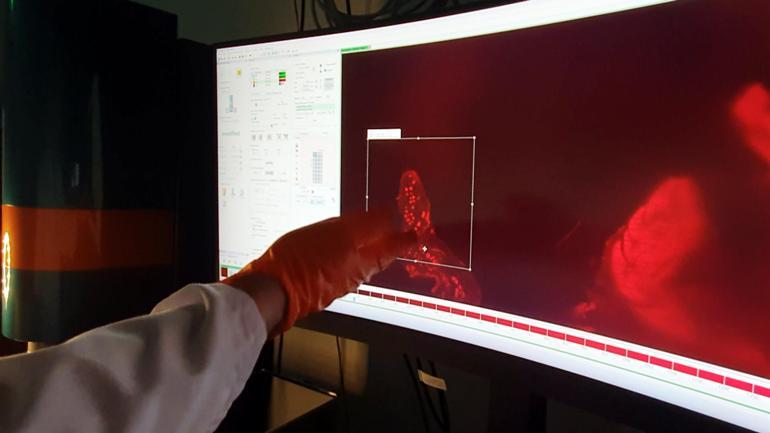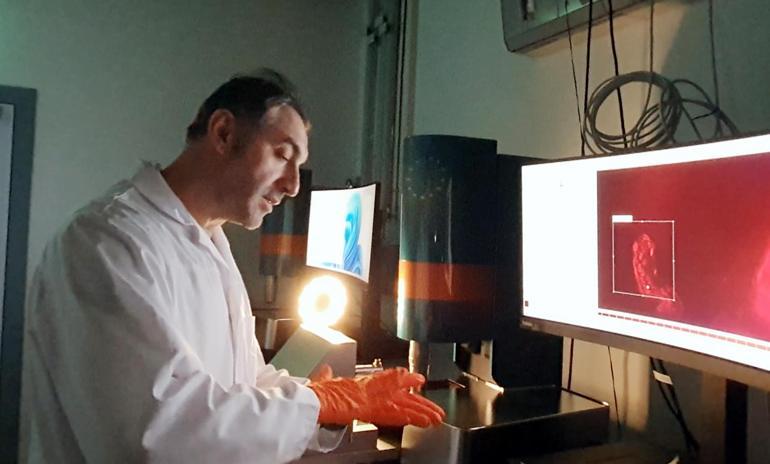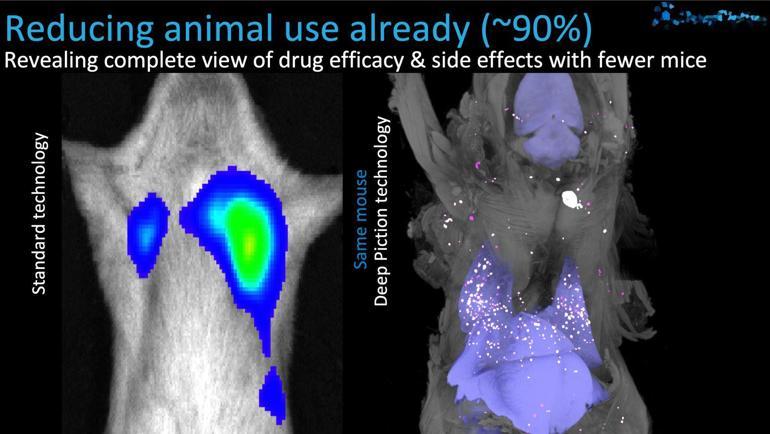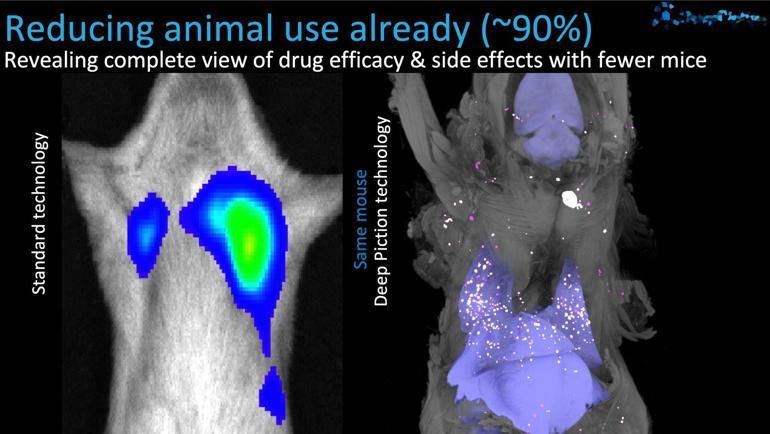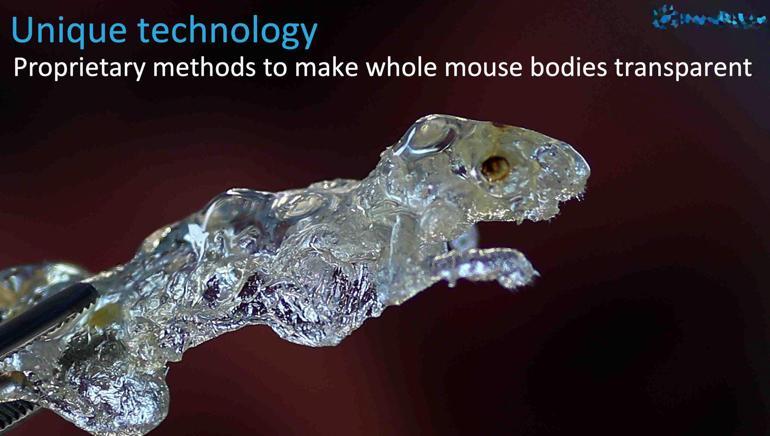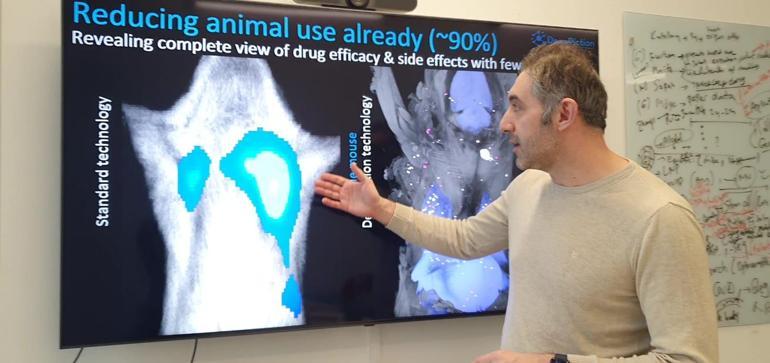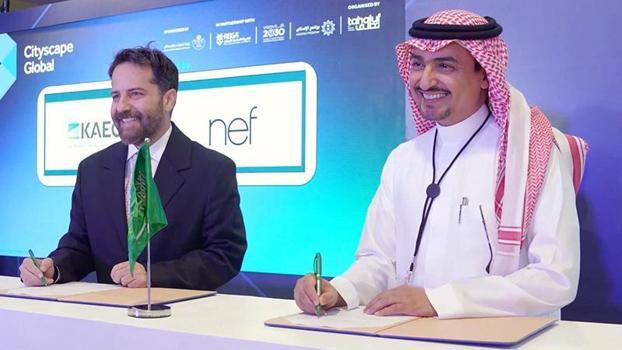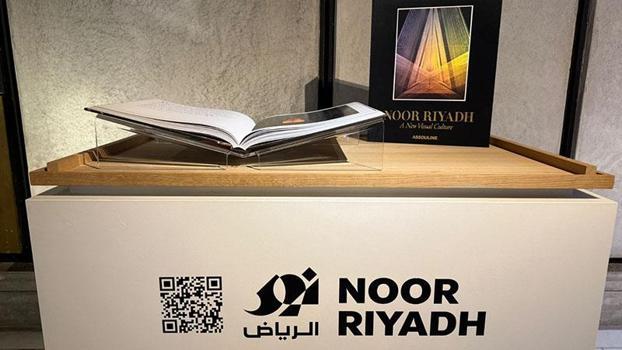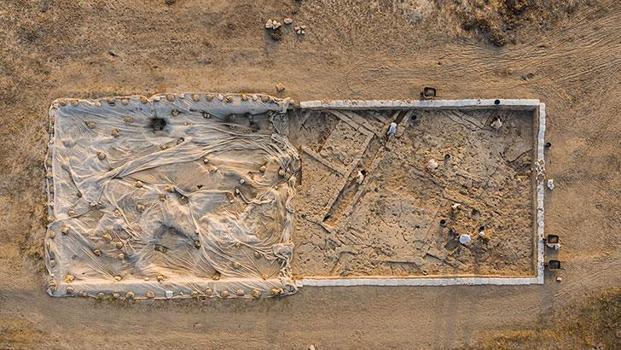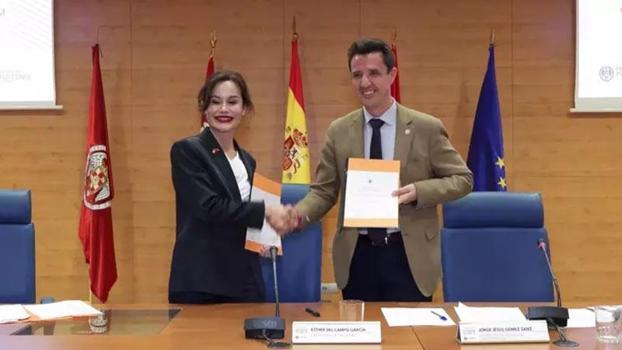Turkish signature in studies that will make world medical history
Prof. Dr. Ali Ertürk, Director of the Helmholtz Institute of Tissue Engineering in Germany, opened the doors of his laboratories, where he carries out biotechnology studies that make a sound in the world, to Demirören News Agency. Ertürk, who is known not only in Germany but also around the world for his research, which has been featured on the covers of the world's most important science journals, said: "One of the most important technologies we are currently working on is to transform these maps into a cell-by-cell tissue using 3D bioprinters. We are the only research group in the world that can produce these maps. When those three-dimensional printers develop in terms of engineering, I guess we will be able to produce all of the large parts of human organs, organs, in the future. Organ transplantation may become history in the same way."
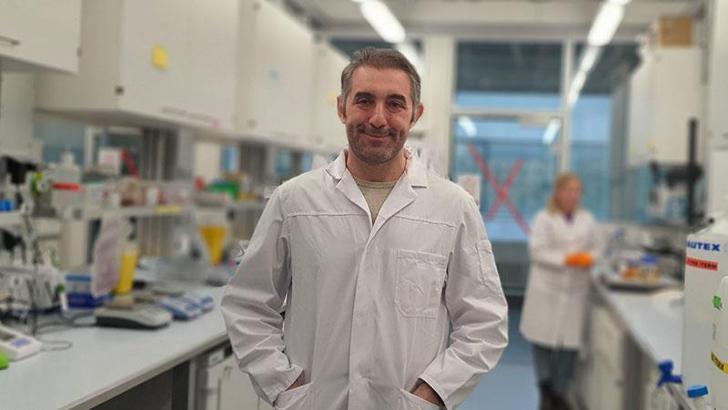
Genetics and Neuroscience Specialist Prof. Dr. Ali Ertürk, Director of the Helmholtz Institute of Tissue Engineering and Regenerative Medicine at Ludwig Maximillian's University in Munich, Germany, opened the doors of his laboratories where he conducts groundbreaking studies in the field of medicine and biotechnology to Demirören News Agency (DHA). Prof. Dr. Ertürk, with his special technique called 'DISCO Transparency', which he developed with his team, was able to 'make transparent' the entire experimental mouse, which is a mammalian animal, and some human organs and tissues such as the heart, eyes, pancreas, and to make 'digital mapping' exactly the same as the real one.
�
Prof. Ertürk's achievement was recently featured in Science magazine's 'Best Science Photos of 2023' category. With Prof. Ertürk's method, biological tissues are made 'super transparent' and then digitized with advanced three-dimensional laser microscopes, with all the details at the cellular level. Thanks to Ertürk's invention, 'live animal experiments' in the preclinical stage, which is the process before human experiments in medical research, will be completely eliminated and scientists will be able to perform their experiments in a 'digital environment' with the help of artificial intelligence. This shortens the duration of pre-clinical research, which takes decades, by 90 percent. Prof. Dr. Ertürk said that the big data they obtained from hundreds of animals that they scanned while making the whole body digital mapping of a mouse contains a similar amount of data to the world's most advanced artificial intelligence platform Chat GPT-4, which is currently equivalent to 65 million books, with a capacity of 3 thousand Wikipedia. Thanks to this technique he developed, biopsies can now be viewed in three dimensions.
AUTHORED THE ONLY STUDY IN THE WORLD
Prof. Dr. Ertürk, who focuses on areas that will break new ground in the medicine of the future, such as understanding the mechanisms of diseases such as cancer, Alzheimer's, neurodegenerative diseases and diabetes that are not yet fully treatable, drug and treatment development, and three-dimensional organ production, said that theirs is the only study in the world that offers such detailed information in the digital mapping of tissues and organs, and said that organ transplantation will soon become history. Ertürk, who started out with a study that revealed the anatomical secrets of how cells communicate with each other by making the body of a dead mouse completely transparent and managed to digitally map various human organs and tissues, including some parts of the brain, with the same method, said that for the last 50-100 years, preclinical and clinical research has always relied on advanced microscopes to look at the parts of cells, but that these are processes that take years, "Raising and using animals in experiments, for example, R&D for a new drug can take 15 years. There is only one solution in front of us to overcome this, and that is artificial intelligence. Because with artificial intelligence, we will no longer be talking about years, but milliseconds."
�
MAPPING ORGANS AT THE CELLULAR LEVEL
Emphasizing that the technique they developed is the only digital technology in the world that can obtain information at the cellular level from any biological tissue such as human tissues and organs and the body of mice, Prof. Dr. Ertürk said:
"When we look at the body of a mammal, it is very important to know the details of how the nervous system is connected to each other, how different organs are connected to the nervous system, blood vessels, lymph vessels. With the technologies we have developed, we can now take detailed three-dimensional images of the whole animal from one end to the other. Likewise, we have made human organs transparent and mapped them in detail at the cellular level. We have achieved this in the heart, kidney, certain parts of the brain, pancreas, liver and now we are working with the lungs. We will add them too. Our goal is to present these maps and the information we have obtained to artificial intelligence, so that artificial intelligence can (fully) understand how the human body works, and to envision it in its mind."
�
ORGANS CAN BE PRODUCED LIKE 'SPARE PARTS', ORGAN TRANSPLANTATION WILL BE HISTORY
Noting that thanks to this information, it may be possible to replace damaged tissues, tissues or organs that have lost their function in our body, Ertürk said, "In a sense, it is like 'spare parts'. The maps we have developed are also very important in this sense. Because one of the most important technologies we are currently working on is to transform these maps into a cell-by-cell tissue using 3D bioprinters. We are the only research group in the world that can produce these maps. Whether it's the pancreas, insulin-producing tissues, certain parts of the heart... We may not be able to print the heart completely right now because there are no technologies to print it yet. When those three-dimensional printers develop in terms of engineering, I guess we will be able to produce all of the large parts of human organs, organs, in the future. Organ transplantation may also become a thing of the past. Or we can change the functions of organs whose function decreases over time with aging, but not completely exhausted. In a sense, it is like having your car serviced."
"ALL EXPERIMENTS CAN BE DIGITALIZED"
Explaining that with the results they have already achieved, they have managed to reduce the use of experimental animals in pre-clinical research in some areas by 10-20 times, Prof. Dr. Ertürk said that many international institutions have started to use this technique and that they are currently in talks with BionTech, which is on the world agenda with its cancer vaccine development.
�
Prof. Ertürk said, "We don't want to do animal experiments anymore, even with human tissues, whether it's for medicines or for understanding diseases. Because they are all very time-consuming processes. Our goal is to obtain all of these from the computer with artificial intelligence simulations, perhaps within seconds. To do this, we need a very powerful artificial intelligence system. The quality data we have collected so far is actually about the same size as Chat GPT. We have collected data equivalent to 65 million books or 3 thousand Wikipedia."
�
THANKS TO THIS TECHNOLOGY, TRIALS CAN BE COMPLETED WITH 3-5 ANIMALS
Pointing out that 'preclinical research', the stage before human trials, takes the most time, Prof. Dr. Ertürk concluded his words as follows
"It takes about 10 years to discover a new molecule and test it on different animals. We can reduce this to almost zero, maybe when we wake up in the morning, the computer will say 'we have 10 new drugs.' Preclinical can be completely history and we can start testing directly on humans. In fact, we can even speed up that side. Since we get very detailed information through imaging, the rate of animal use has decreased a lot. If 100 animals would be used to understand a disease, thanks to our method, this can now be solved with 3-5 animals.
�
In other words, we have reduced the use of animals by 90-95 percent. This means that studies accelerate 10-20 times. Because you do 10-20 times less experiments. Our goal is for artificial intelligence to simulate a person's disease 'specifically for him' and prepare his medicine. We have already started preliminary studies for this. There are very large research companies using our technologies. They are used in vaccine development, diabetes studies, cancer drugs, nervous system diseases, neurodegenerative diseases such as Alzheimer's disease. It is also used to understand the spread of cancer and develop new treatments against it, both using mRNA technology and CAR-T cell technology."

